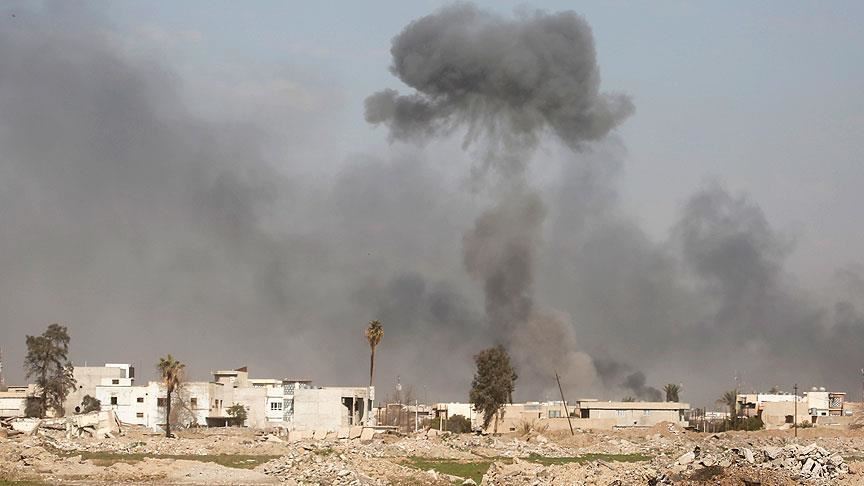20 Dec, 2019 in Iran / Iraq / United States by Erin McBrairty (updated 1 day ago)
On December 9th, four Katyusha rockets hit a military base near the Baghdad Airport in Iraq. As a result of the attack, six Iraqi soldiers were wounded. Security forces in Iraq found a rocket launcher and several defused rockets near the area after the attack. According to a security official in Iraq, the targeted military base is frequently visited by military advisers from U.S forces located in Iraq. There has been no claim of responsibility for the attack, but, according to Al Jazeera, this incident was the most recent in a series of attacks on military installations in Iraq. Last Tuesday, December 3, five rockets hit the Ain al-Asad airbase which frequently hosts U.S forces; this attack caused little damage and no casualties. The following Thursday, two Katyusha rockets were fired at the Balad airbase, but there were no reported casualties or damage. A rocket also landed less than a mile away from the U.S Embassy in Baghdad, in close proximity to Iraq’s parliament building; no one was injured and damage was minimal.
Security forces told AFP that the six wounded Iraqi soldiers worked in Iraq’s Counter-Terrorism Service, an elite unit that was formed and trained by U.S forces present in the country; two of the wounded are in critical condition. According to Arab News, U.S officials believe these recent attacks can be attributed to Iranian-backed factions in Iraq. Security forces have attributed at least one of the attacks over the last week to Kataib Hezbollah, a strong Shiite group close to Tehran and blacklisted by Washington. Iran holds extensive influence in Iraq due to the Hashed Al-Shaabi, a security force operating in Iraq made up of Shiite militia. A defense official from the U.S stated that these recent rocket attacks made the Hashed a bigger threat to U.S troops in Iraq than the Daesh group, a militant group that the U.S is helping Iraq eradicate.
These recent attacks, largely associated with Iranian-backed Shiite militia groups, has caused concern about increasing tensions between the U.S and Iran; along with these tensions, a fear has developed that Iraq will get caught in the middle if a conflict develops between the U.S and Iran, two of Iraq’s closest allies. This attack on the military base near the airport is one of the first incidents in this series of attacks that has had serious consequences. The past attacks have caused minimal damage and no injuries; this attack resulted in damage to the base and six injured Iraqi soldiers, two of which are still in critical condition.
The tenuous relationship between the U.S and Iran has become much more volatile since the U.S pulled out of an important nuclear agreement with Iran in 2018 and imposed harsh sanctions against the country later that same year. These recent attacks have all targeted some aspect of the U.S forces in Iraq. Most of the U.S forces withdrew from Iraq in 2011; in 2014, the Iraqi government invited them back to help combat the Islamic State group after the latter seized control of areas in the northern and western parts of the country. There are about 5,000 U.S troops currently in Iraq. According to the Washington Post, officials in the U.S said they are considering a plan to send an additional five to seven thousand troops to Iraq to combat the Iranian threat.
As tensions rise between the U.S and Iran, Iraq is getting caught in the middle. The Washington Post pointed out that these attacks contribute to setting the stage for a larger, full blown attack aimed at the U.S and Iraqi forces. The unpredictability of the possible conflict is a major security concern for Iraq especially. Iraqi officials have repeatedly expressed these concerns and have warned that a break out of a serious conflict will destabilize Baghdad, especially since the government is in such a vulnerable state as it tries to recover from a costly campaign to get the IS out of their country. As Iranian-backed militias continue these attacks and the U.S makes no plans to develop a new nuclear agreement while continuing to impose sanctions, tensions between the two rise and leave Iraq vulnerable and caught in the middle.
No comments:
Post a Comment